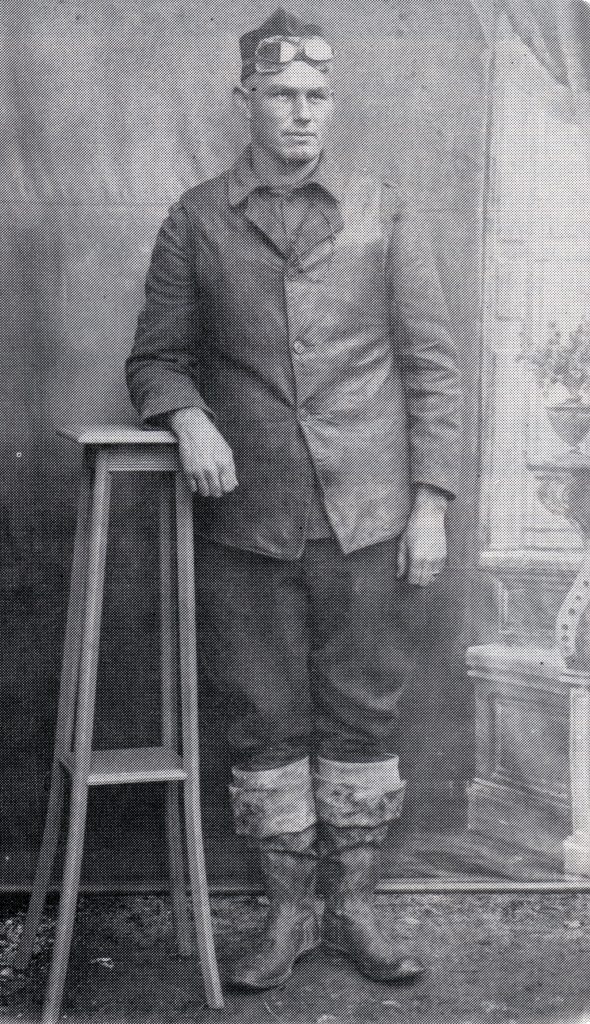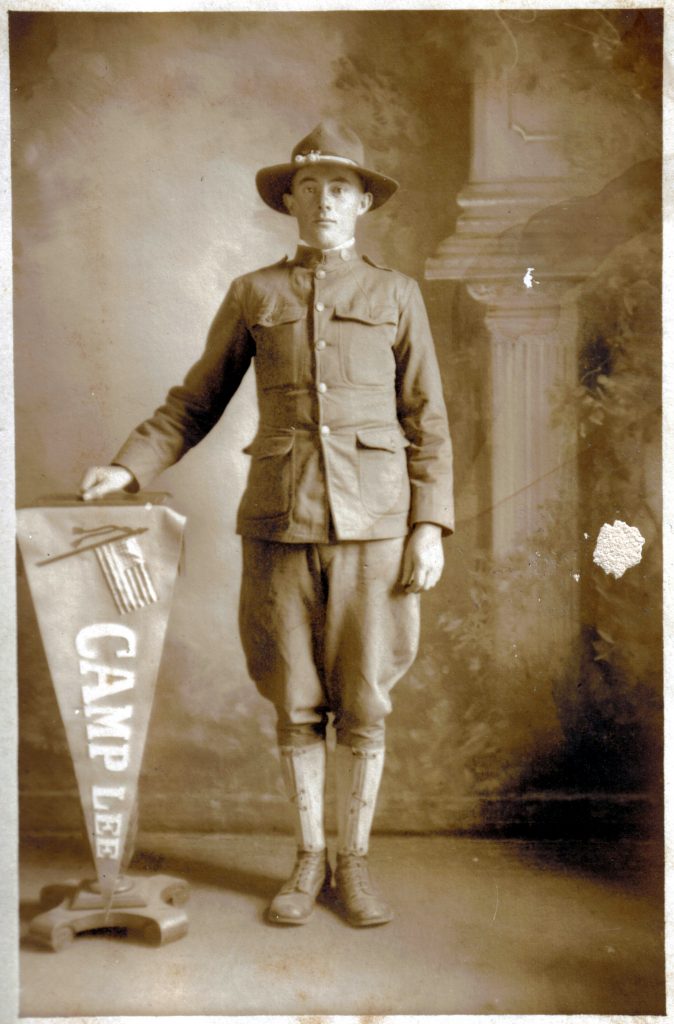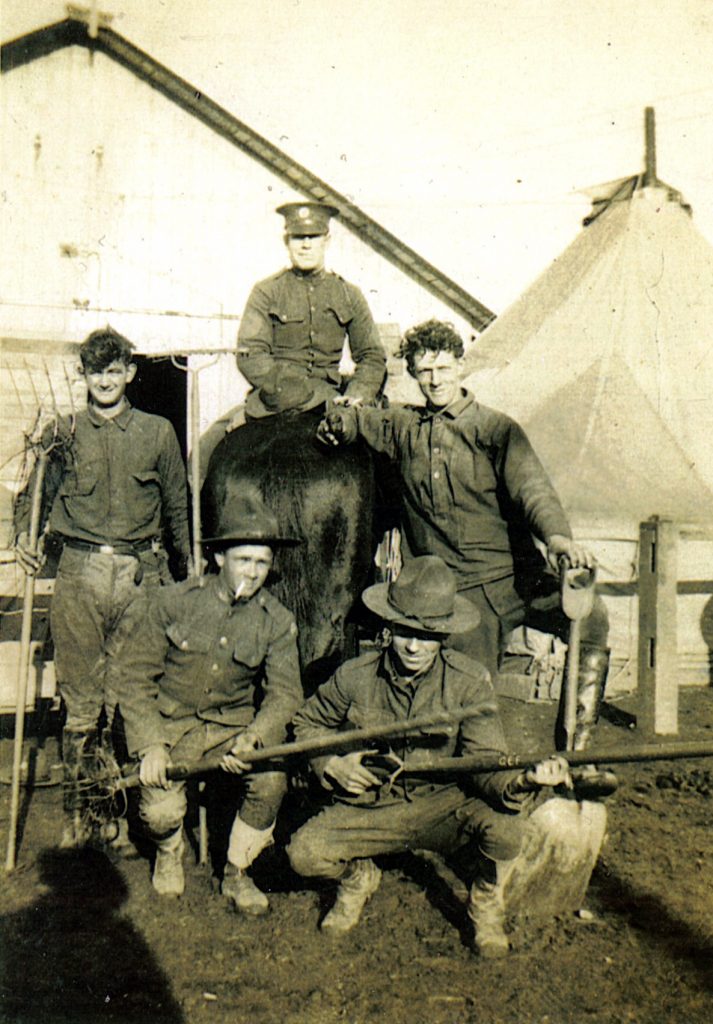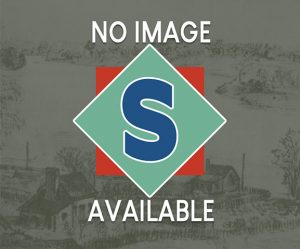World War I and Aftermath
At least 329 Stafford men and women served in the First World War (Musselman). During that war the Quantico Marine Base was established, beginning a long relationship with Stafford County. The Quantico Marine Corps Reservation now occupies approximately 51 square miles of the northern portion of Stafford County and constitutes about 18 percent of the county’s land area. The joint history between the county and the base has developed into a warm friendship and pride in mutually shared experiences.
Illustrative of Stafford’s World War I soldiers was Private William Weedon Cloe. A compilation of his father’s letters and military experiences by historian John Haile Cloe, provides special insights. “Weedon” Cloe was born on June 12, 1898, in Shacklet, Stafford County. His grandfather had served in Company “A” (Stafford Rangers) of the 9th Virginia Cavalry in the Civil War. His father was a farmer who served on the county school board for 33 years, while holding a local mail delivery contract. The Cloes were farmers in a poor, agricultural community; they lived modestly and opportunities to view the outside world were rare. Weedon Cloe spent his youth on the farm and received a typical seventh-grade education. As he came of age, Europe was embroiled in “the Great War” (1914). On April 6, 1917, the day the United States declared war, he enlisted (age 18) in the 1st Virginia Infantry Regiment, Virginia National Guard. Mustered into Federal service in Richmond between July-August 1917, his unit was shipped to Camp McClellan, Alabama, in September 1917, becoming the 116th U.S. Infantry, 29th “Blue-Gray” Infantry Division. Company “B,” Cloe’s unit, trained until May 1918 when they left for France. Homesick, on October 5, 1917, he wrote to his family: “What is the matter that I haven’t heard from you? We were transferred this morning. I am now in B Company. It is no longer any Richmond Grays company for A and C divided their men between B and M companies. I am glad that they put me in B for that is from Richmond and I know right many boys in it.” They departed from Hoboken, New Jersey, and crossed the Atlantic safely. Weedon wrote snippets of letters to relieve home front anxiety. Like so many Americans, he witnessed foreign devastation expressing gratitude that America and his home were spared. After additional training in France, he saw combat at Haute Alsace, near the Swiss Border. His October 19, 1918 letter reveals (by omission) he now truly understood the horrors of war:
Dear Mother,
Just a few lines to let you know I am safe and all OK. I have received several letters from you lately and all of them came in so good and am so glad to hear that you all are getting along so nicely. I haven’t heard anything from Ainsley for so long that I have begun to think that he has forgotten me. But I hope he has written to you every chance he gets. We have been driving the Germans now for some time and will write and tell you more about it as soon as I get more chance. Certainly have had some experiences in the fighting line and I thank God that he has carried me through. You must give my love to all and tell them I am doing what they expect me to and that is my best. Will write again when I can.
Safely behind the lines on October 31, 1918, Weedon was able to take stock of his experiences — equal parts joy, humility, sorrow, pride and survivor’s guilt. Hospitalized in Revigne, near Bar-Le-Duc, on November 3, 1918, he had bronchial pneumonia. The war ended eight days later with him still in hospital (where he remained until January 1919). Returning to his company he found that much had changed; the boredom of waiting to return home was palpable. After another illness (mumps) and hospitalization, Cloe finally went home. He mustered out at Camp Lee in May 1919 and returned home. [Cloe]
In 1923 Cloe married his sweetheart, Elizabeth; they honeymooned in New York. Their Stafford home, “Laurel Hill,” initially lacked electricity and running water. Cloe remedied those situations by installing a gas-carbide generating light system and a gasoline-powered pump. He connected a battery-powered telephone line to his parents. Weedon Cloe became a substantial member of his community. He was a member of Aquia Episcopal Church (a vestryman); the Masons; the Ruritan Club; and the American Legion, and served on the county Stafford Board of Supervisors, representing Aquia District. Cloe would be tested once more at the beginning of the Second World War. He died on January 8, 1947, aged 48, shortly after surgery for a brain tumor. [Cloe]
Other Staffordians came home after World War I – declared hopefully but incorrectly “the war to end all wars.”





Based on information from:
Conner, Albert Z., A History of Our Own; Stafford, Virginia. Virginia Beach: Donning Press, 2003.


